
BILL COLLINS REMEMBERS WHEN lobster was a worthless bycatch. “Growing up in Newfoundland, no one wanted to eat it,” he says. Kelp was even worse: fishermen called patches of it “devil’s apron.” Its long, flat strands fouled nets, jammed up propellers and marked rocky, dangerous waters. But just as lobster has become a delicacy, Collins thinks kelp’s day is coming.
A few years ago, the Vancouver Island Economic Alliance hired the marine geologist and entrepreneur to find the best industries for attracting foreign investment to the area. He considered everything from eco-tourism to clean-tech, but one option stood out as too good to hand over to someone else — kelp farming.
Kelp is a type of seaweed that grows in long strands stretching from depths of more than 50 metres right up to the surface of the ocean. Like their landlubber counterparts, kelp grows in forests of trunks that both shade the seafloor and create multi canopy habitats that harbour some of the richest biodiversity in temperate waters. Wave energy undulates the trunks and leaves back and forth, as the energy is absorbed by the kelp, protecting coastlines and creating calmer habitat for birds and mammals to shelter in. Many biologists agree kelp forests are one of the most important habitats for marine wildlife in all the Canadian oceans.
Those same factors make kelp farming attractive. “The opportunity is tremendous,” Collins says. “Canada is in the sweet spot for brown kelp. And farming it here can check a number of boxes.”
Esta historia es de la edición Canadian Geographic November/December 2021, Vol. 141, No. 6 de Canadian Geographic.
Comience su prueba gratuita de Magzter GOLD de 7 días para acceder a miles de historias premium seleccionadas y a más de 9,000 revistas y periódicos.
Ya eres suscriptor ? Conectar
Esta historia es de la edición Canadian Geographic November/December 2021, Vol. 141, No. 6 de Canadian Geographic.
Comience su prueba gratuita de Magzter GOLD de 7 días para acceder a miles de historias premium seleccionadas y a más de 9,000 revistas y periódicos.
Ya eres suscriptor? Conectar
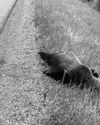
ANIMAL XING
THIS PAST SUMMER AN AMBITIOUS WILDLIFE UNDER/OVERPASS SYSTEM BROKE GROUND IN B.C. ON A DEADLY STRETCH OF HIGHWAY JUST WEST OF THE ALBERTA BORDER. HERE’S HOW IT HAPPENED.
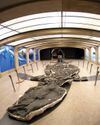
Unearthing a giant
Almost 30 years ago, paleontologist Elizabeth “Betsy” Nicholls made a discovery of colossal proportions
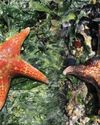
WE DID THIS
AS THE IMPACTS OF GLOBAL WARMING BECOME INCREASINGLY EVIDENT, THE CONNECTIONS TO BIODIVERSITY LOSS ARE HARD TO IGNORE. CAN THIS FALL’S TWO KEY INTERNATIONAL CONFERENCES POINT US TO A NATURE-POSITIVE FUTURE?
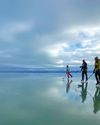
The COOLEST COUNTRY
“The coolest country” celebrates the wonders of winter with an all-Canadian theme. The 20-page travel planner includes a bucket list from travel writer Robin Esrock, steamy spa ideas, ice fishing destinations, festival fun, northern itineraries and more!
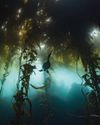
KEEPER of the SEA
FROM BEING LABELLED DEVIL’S APRON BY FRUSTRATED FISHERMEN TO BEING LAUDED AS A SUSTAINABLE FOOD SOLUTION: HOW KELP’S POTENTIAL IS BEING REALIZED, JUST AS SCIENTISTS LEARN IT’S DECLINING
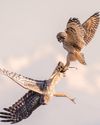
WILD THINGS
WILD CANADIAN GEOGRAPHIC PRESENTS THE WINNERS OF ITS ANNUAL CANADIAN WILDLIFE PHOTOGRAPHY OF THE YEAR COMPETITION

AN EMPTY LANDSCAPE
AFTER MORE THAN A MILLION YEARS ON EARTH, CARIBOU ARE UNDER THREAT OF GLOBAL EXTINCTION. THE PRECIPITOUS DECLINE OF THE ONCE MIGHTY HERDS IS A TRAGEDY THAT IS HARD TO WATCH — AND EVEN HARDER TO REVERSE.
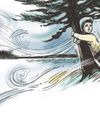
NORTHERN EXPOSURE
BON INTO A CARIBOU-HUNTING CREE FAMILY IN NORTHERN MANITOBA, ACCLAIMED PLAYWRIGHT AND NOVELIST. TOMSON HIGHWAYS PAYS TRIBUTE TO THE MAGICAL WORLD OF HIS CHILDHOOD IN PERMANENT ASTONISHMENT

INTO THE ARCTIC
CANADIAN PAINTER AND FILMMAKER CORY TRÉPANIER EXPLORES THE SUBLIME AND RAPIDLY CHANGING CANADIAN ARCTIC
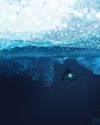
Under the ice
Until the last decade, we knew little about what lay beneath the Arctic ice. Now scientists and explorers are shedding light on this vanishing world.